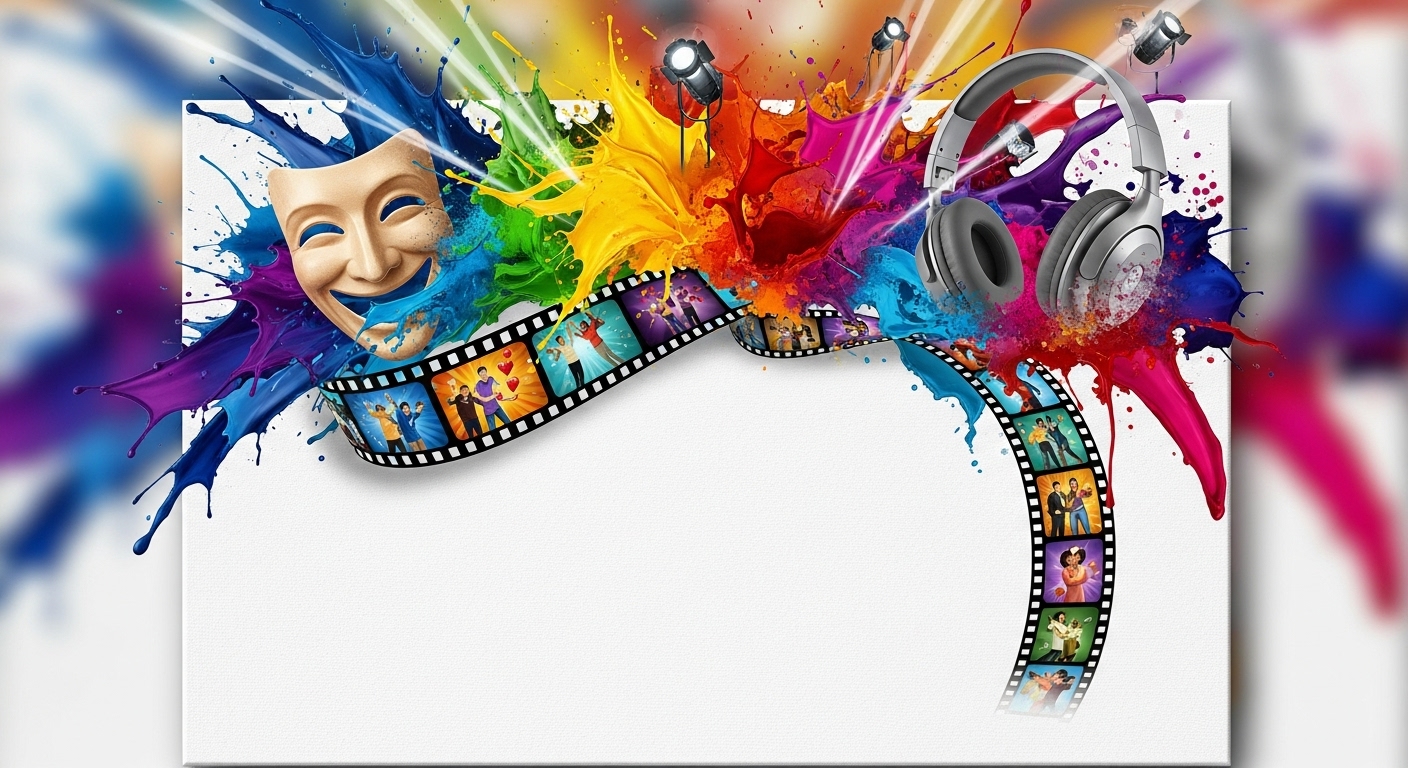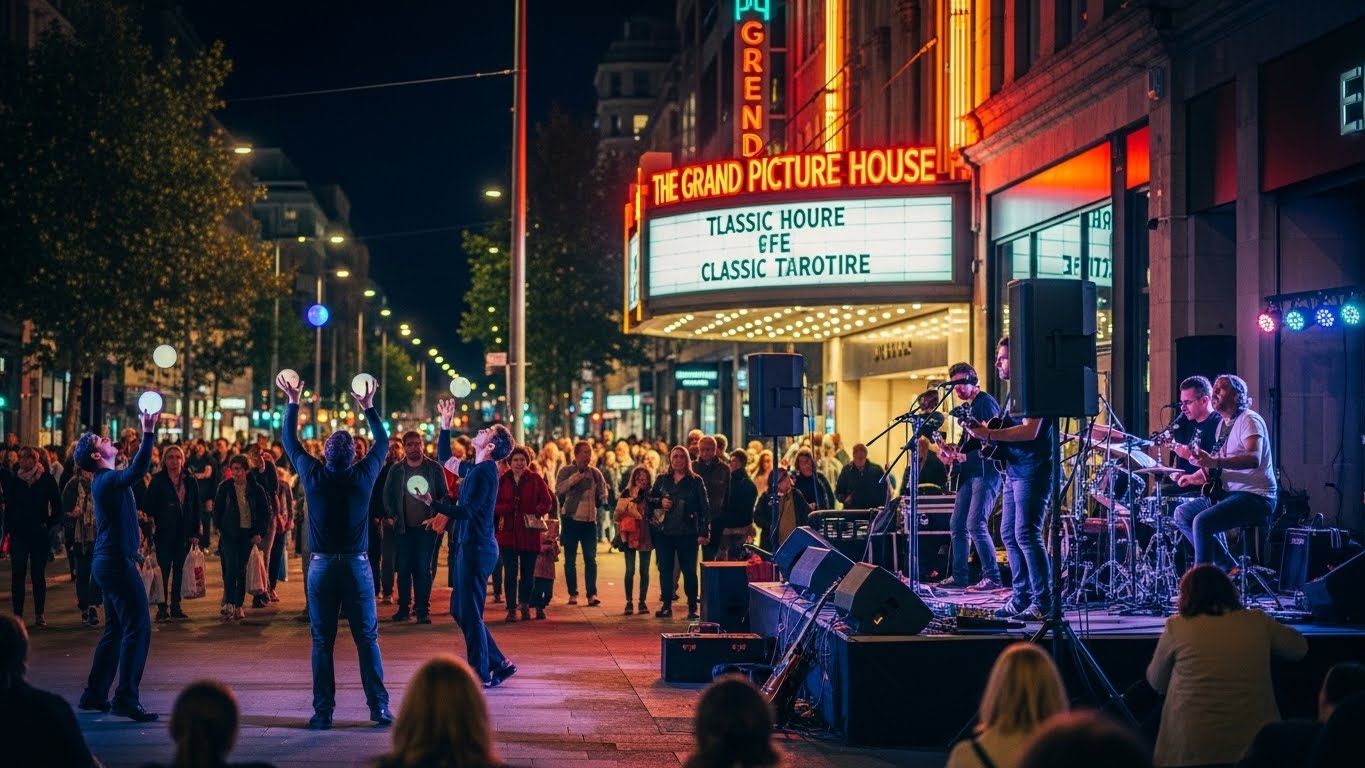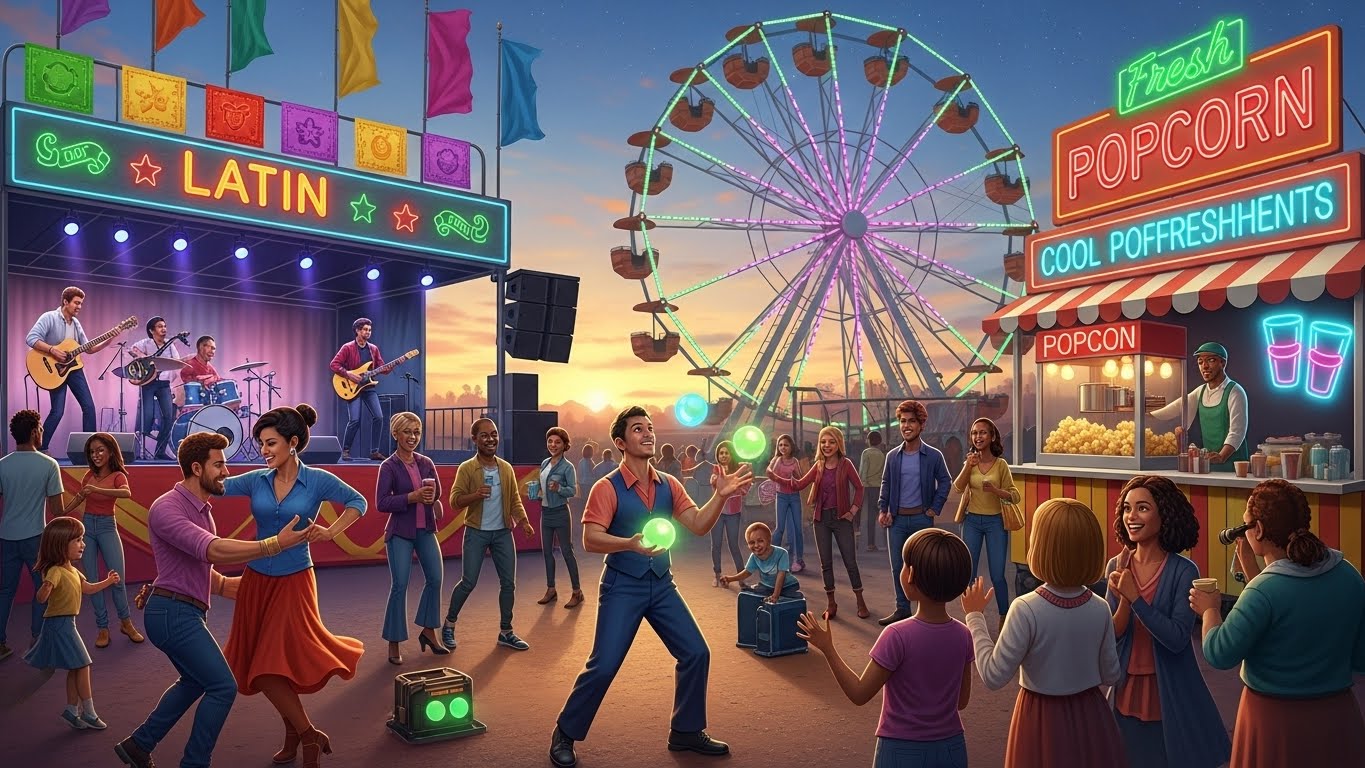Entertainment has always been an essential part of human life. From the earliest cave paintings and tribal dances to the modern-day digital streaming platforms, people have sought ways to amuse themselves, connect with others, and experience stories beyond their daily lives. In this blog post, we will explore the evolution of entertainment, current trends, influential mediums, and how it impacts culture and society.
A Historical Perspective on Entertainment
Entertainment, in its earliest form, was deeply rooted in cultural and social contexts. Ancient humans engaged in storytelling, music, and dance, often as a form of ritual or community bonding. These forms of entertainment were not just about amusement but also about passing down traditions, history, and moral lessons.
With the advent of theater in ancient Greece and Rome, entertainment became more structured. Greek tragedies and comedies explored complex human emotions, societal issues, and philosophical questions. Similarly, Roman entertainment, particularly gladiatorial games, combined spectacle with social commentary. Both civilizations highlighted how entertainment could reflect and shape societal values.
In medieval times, entertainment shifted toward festivals, fairs, and traveling performers. Minstrels, jesters, and storytellers brought amusement to towns and villages. The focus was not only on storytelling but also on interactive experiences, often blending humor, music, and moral lessons.
The invention of the printing press in the 15th century revolutionized entertainment further. Suddenly, stories, plays, and poetry could reach a wider audience. Books became a primary source of intellectual and creative engagement, laying the foundation for modern literature and storytelling.
The Golden Age of Cinema
The 20th century marked the rise of cinema as a dominant form of entertainment. Silent films captivated audiences with their visual storytelling, and the advent of sound in movies opened new avenues for creativity. Hollywood emerged as the epicenter of global cinema, producing films that entertained millions and shaped cultural narratives.
Film genres evolved to cater to diverse tastes. Comedy offered a lighthearted escape, drama explored human struggles, while adventure and action films provided thrills and excitement. Musicals combined song and dance with storytelling, creating an immersive experience. International cinema also flourished, with countries like France, India, Japan, and Italy offering unique perspectives and styles that enriched global entertainment.
Cinema did more than entertain; it influenced fashion, language, and social attitudes. Iconic actors became cultural icons, and their on-screen personas often inspired real-life trends. Film scores and soundtracks further enhanced the emotional connection between the audience and the story, demonstrating the multifaceted nature of entertainment.
Television: Bringing Entertainment Home
The invention of television brought entertainment directly into people’s homes. Suddenly, families could gather around a screen and experience stories together. Television diversified entertainment by offering news, sitcoms, dramas, reality shows, and educational programs.
Sitcoms like “Friends” and “The Office” created long-lasting cultural phenomena, combining humor with relatable life situations. Reality TV shows, on the other hand, introduced audiences to real-life drama, competitions, and personal stories, blurring the line between reality and performance.
Television also played a critical role in shaping public opinion and social awareness. News programs, documentaries, and talk shows provided platforms for discussing pressing societal issues. This dual role of entertainment and information cemented television’s significance in modern life.
The Rise of Digital Entertainment
With the internet revolution, entertainment underwent another seismic shift. Streaming platforms, social media, and digital content creators transformed how people consumed entertainment. Services like Netflix, Amazon Prime, and Disney+ allowed viewers to watch content on-demand, breaking the limitations of traditional broadcasting schedules.
Social media platforms became hubs for entertainment in micro formats. Short videos, memes, and live streams engaged audiences in new ways, emphasizing interactivity and immediacy. Influencers and content creators emerged as new entertainers, connecting directly with their followers and often bypassing traditional media channels.
Video games also became a mainstream form of entertainment. Modern gaming is immersive, interactive, and narrative-driven, appealing to a broad audience. Competitive esports has transformed gaming into a spectator sport, with tournaments filling arenas and attracting millions of online viewers worldwide.
Digital entertainment also democratized creativity. Independent artists, writers, filmmakers, and musicians can now share their work globally without needing access to large studios or production houses. This has diversified the types of stories and performances available, reflecting a wider array of experiences and perspectives.
Music: The Universal Language
Music has always been a cornerstone of entertainment. From classical symphonies to contemporary pop, music entertains, inspires, and unites people across cultures. Live concerts, festivals, and music tours offer communal experiences that are both emotionally and socially enriching.
The digital era transformed the music industry. Streaming services allow listeners to access millions of songs at their fingertips, and social media enables artists to build fan bases independently. Viral trends on platforms like TikTok have the power to catapult songs into global hits overnight, demonstrating the interplay between technology and entertainment.
Music’s impact goes beyond amusement. It shapes cultural identity, drives social movements, and provides a means for personal expression. Whether through rhythm, lyrics, or melody, music resonates with human emotions in ways few other forms of entertainment can.
Live Performance and Theater
Despite technological advancements, live performances remain a unique form of entertainment. Theater, concerts, stand-up comedy, and dance performances offer an immediacy and intimacy that digital content cannot replicate.
Theater, in particular, continues to evolve. Contemporary plays explore pressing social issues, experiment with interactive storytelling, and often incorporate multimedia elements. Broadway and West End productions remain cultural landmarks, drawing audiences from around the world.
Live entertainment also fosters community. Shared experiences in a theater, concert hall, or stadium create collective memories and a sense of belonging. The energy of a live audience and the spontaneity of performance make live entertainment timeless and irreplaceable.
The Influence of Pop Culture
Pop culture is both a reflection and driver of entertainment trends. Movies, TV shows, music, and video games shape what people talk about, what they wear, and even how they perceive the world. Popular characters, memes, and catchphrases permeate daily life, creating shared cultural touchpoints.
Celebrities play a crucial role in pop culture, influencing fashion, behavior, and societal attitudes. Their lives, both on and off-screen, become a form of entertainment in themselves. The fascination with celebrity culture underscores humanity’s love for stories, whether fictional or real.
Pop culture also fosters innovation in entertainment. The demand for fresh, engaging content pushes creators to experiment with new formats, genres, and technologies. This cyclical relationship between audience expectations and creative output ensures that entertainment continues to evolve.
Entertainment and Technology
Technology has dramatically reshaped how we experience entertainment. Virtual reality, augmented reality, and artificial intelligence are opening new frontiers in storytelling and interactivity. VR allows users to step into fully immersive worlds, while AR overlays digital experiences onto the real world.
Artificial intelligence is also being used to create music, generate visual art, and even assist in scriptwriting. These technologies challenge traditional notions of authorship and creativity, prompting both excitement and debate in the entertainment industry.
Moreover, technology has made entertainment more accessible. Streaming services, mobile apps, and online platforms allow global audiences to enjoy content anytime, anywhere. This accessibility has democratized entertainment, breaking down geographic and socioeconomic barriers.
Entertainment as a Social Connector
Entertainment is more than just a personal escape; it connects people. Movies, music, games, and live events create spaces for shared experiences. Social gatherings, online communities, and fan conventions are built around entertainment, fostering social bonds and collective identity.
Shared entertainment experiences also spark conversations and debates. Whether discussing a film’s plot twists, a musician’s latest album, or a viral video, entertainment provides a common ground for dialogue and engagement. This social dimension underscores the profound cultural significance of entertainment.
Challenges and Ethical Considerations
As entertainment continues to evolve, it faces challenges and ethical questions. The line between reality and fiction can blur, especially with reality shows, immersive games, and AI-generated content. Issues of representation, cultural sensitivity, and media responsibility are increasingly important in today’s globalized world.
Addiction to digital entertainment is another concern. Overconsumption of video games, social media, and streaming content can affect mental health, productivity, and interpersonal relationships. Entertainment providers are now grappling with the responsibility of creating content that is engaging yet mindful of its impact on audiences.
The Future of Entertainment
Looking ahead, entertainment is poised for even more transformation. Advances in technology will continue to redefine storytelling, interactivity, and audience engagement. Cross-platform experiences, AI-driven content personalization, and immersive virtual worlds will shape the next generation of entertainment.
However, the core essence of entertainment will remain the same: it is a human endeavor to amuse, inspire, and connect. While the mediums and methods may evolve, the universal desire for stories, experiences, and creative expression will endure.
Conclusion
Entertainment is an ever-evolving reflection of human culture, creativity, and technology. From ancient storytelling and live theater to digital streaming and virtual reality, it has continuously adapted to meet the desires and needs of society. Music, film, television, live performance, and digital content all contribute to a rich and diverse landscape that entertains, educates, and connects people worldwide.
As we move further into the digital age, the possibilities for entertainment are limitless. Yet, the underlying purpose remains unchanged: to captivate, inspire, and unite us through shared experiences and the timeless power of imagination.
Entertainment is not just a pastime; it is an essential part of what makes life vibrant and meaningful. In a world constantly changing, it reminds us of the joy of storytelling, the thrill of creativity, and the unifying power of shared human experiences.



